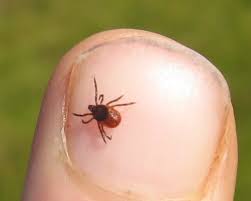Ticks are gross, they are also on the rise. This year has brought record numbers of ticks and tick borne diseases to the area. What was once was a mostly eastern PA problem has now shifted west. Here are some things you should know about them.
1. Ticks transmit disease, both to pets and people. Every time your dog is heartworm tested we use a 4dx Plus test from Idexx. This will let us know if your pet is positive for the tick borne diseases, Lyme, Anaplasma or Ehrlichia.

3. Ticks do not die in the winter. Unlike most pests that die off after winter weather, ticks can remain active even when there is snow on the ground. “Temperatures have to drop below 10 degrees F for a long time in order for ticks to start dying off,” according to Michael W. Dryden, DVM, PhD, professor in veterinary parasitology at Kansas State University.
4. Never crush a tick with your fingers. The CDC, Center for Disease Control, states that the best way to dispose of a live tick is by submersing it in alcohol, placing it in a sealed bag/container, wrapping it tightly in tape, or flushing it down the toilet.
5. Ticks can secrete small amounts of saliva with anesthetic properties so that the animal or person can’t feel that the tick has attached itself. If the tick is in a sheltered spot, it can go unnoticed.
Call our office if you have any questions about ticks, or if you find one on your pet.
724-656-0980


